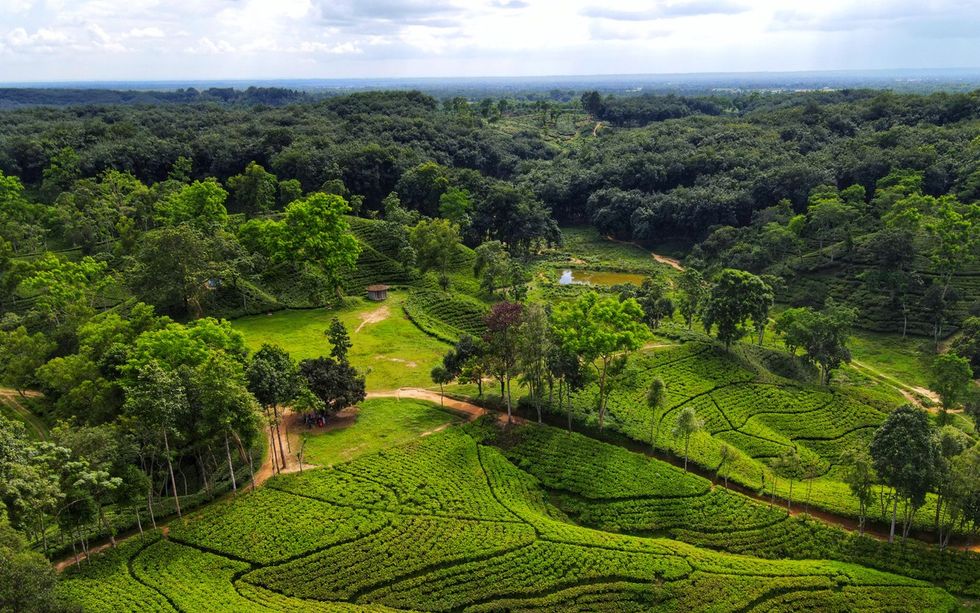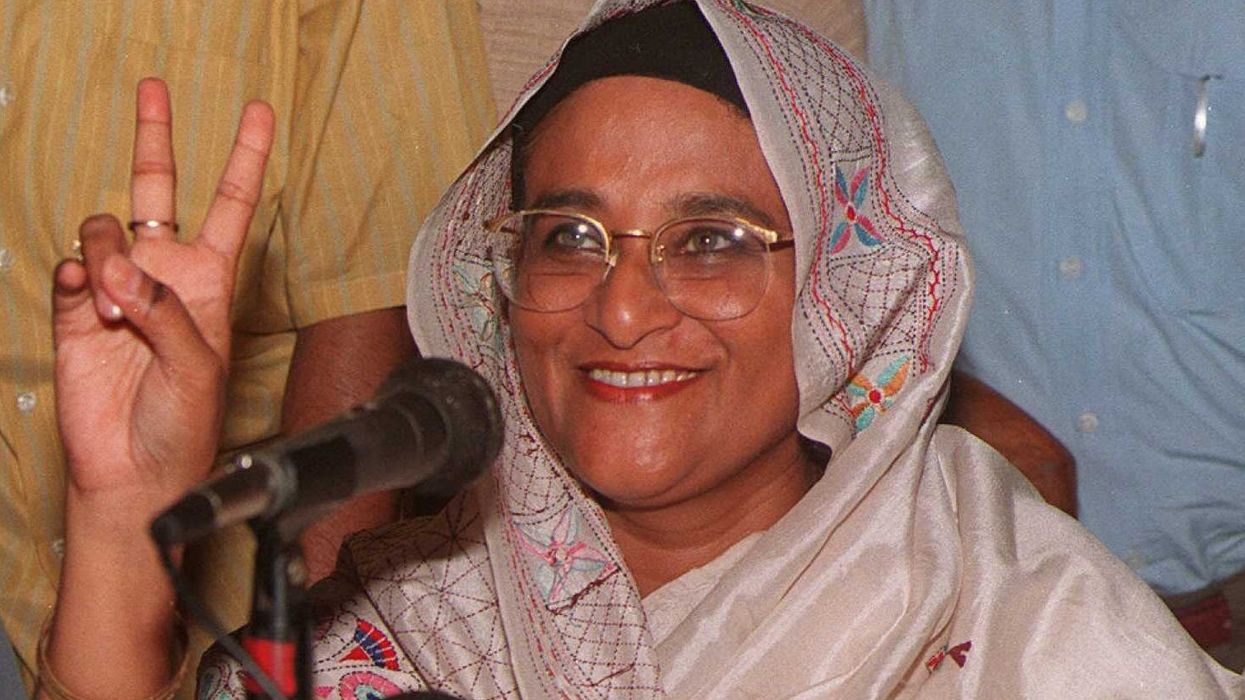“COME and see me in Dhaka,” Sheikh Hasina Wazed said to me.
And I did just that.
I had been involved in covering the Bangladesh story from the start, and would see Hasina whenever she came to London.
In one interview, I asked her about the army officers who had killed her father, Sheikh Mujibur Rahman, the founder of the nation, along with his wife, children and extended members of the family.
Hasina and her younger sister Rehana (mother of the Labour MP Tulip Siddiq) survived only because they were abroad. It was this massacre that brought Hasina into politics. Her main mission was to bring her father’s assassins to justice.
My trip to Bangladesh was not just to write about politics, but to travel to Sylhet, from where the majority of Bangladeshis in the UK have come.
Sylhet is lush, green and utterly beautiful, and full of large houses built with remittances sent from the UK.
Locals with relatives in Britain are called “Londonees”, I was told in the market. One man said: “If we see a Londonee approaching, we put up the price of the fish.”
One evening in Dhaka, Hasina took me to the family home where her father and other members of the family had been killed. The house, which was no longer occupied, had been turned into a shrine for Sheikh Mujib.
Hasina showed me the place where she thinks her father’s body was riddled with bullets. The marks on the wall had not been repaired, a testament to the bloody history of Bangladesh. That evening explains a great deal about why Hasina has been single-minded in pursuit of her father’s killers.
There was a time before Lord Curzon partitioned the united province of Bengal in 1905, when Hindus and Muslims lived side by side. The division was reversed, but the seeds of communal discord were sown. Before Curzon’s action, Hindus and Muslims had attended each other’s religious ceremonies and festivals.
My paternal grandfather’s ancestors hailed from the village of Araihazar in district Narayanganj, not far from the capital Dacca (now spelt Dhaka). My paternal grandmother cooked Bengali food in a way associated with East Bengal. Her accent was also different from the kind of Bengali spoken in Calcutta (now Kolkata).
There have been several books and films about the Hindu Bengali exodus from East Bengal. And now, in the wake of Hasina’s downfall, the minority Hindu community is once again being attacked by hardline Islamic groups who will vie with the army for control of Bangladesh.

At a meeting in 1971 of the Washington Special Group attended by Henry Kissinger and an American ambassador, U Alexis Johnson, Bangladesh was described as a “basket case”. However unfair, the label stuck.
But in the last decade or so, the economy showed remarkable resilience. Threatened by rising sea levels, the people of Bangladesh have been innovative in building storm shelters. But Bangladesh’s long-term future lies in the country establishing itself as a secular society. This is the main reason why India backed Hasina, who was seen as a bulwark against hardline Islamism.
I have to report a small postscript. When I was at the Sunday Times, two young women, who were critical of the Awami League, came to see me. It transpired they were the daughters of one of the army officers in the plot to assassinate Sheikh Mujib. He had been rewarded with a diplomatic post. The girls grew up with a perverse view of what their father had done. But, in the end, I felt the sins of the father ought not to be visited on his children.
There was once great optimism that Hasina would be able to turn Bangladesh into a flourishing, prosperous democracy. She has been too long in power, but it was felt that there was no viable alternative. The final phase of her rule, mired by indiscriminate killings, has proved disastrous.
What happens next will have serious consequences for the UK’s Bangladeshi diaspora who, like Indians and Pakistanis, have close links with “back home”. These are perilous times for Bangladesh too. There is no way back for Hasina, but the pulling down of Sheikh Mujib’s statue does not augur well. He will continue to symbolise “sonar Bangla” – golden Bengal.
No one wants to see a return to military rule or a drift to a hardline Islamic state. That goes against the culture of the people. What is required is time for passions to cool and a period of quiet reflection. Bangladesh must not be allowed to become ungovernable, and British Bangladeshis have to help in this process. As I found in Sylhet, it is a beautiful country.






 www.easterneye.biz
www.easterneye.biz





